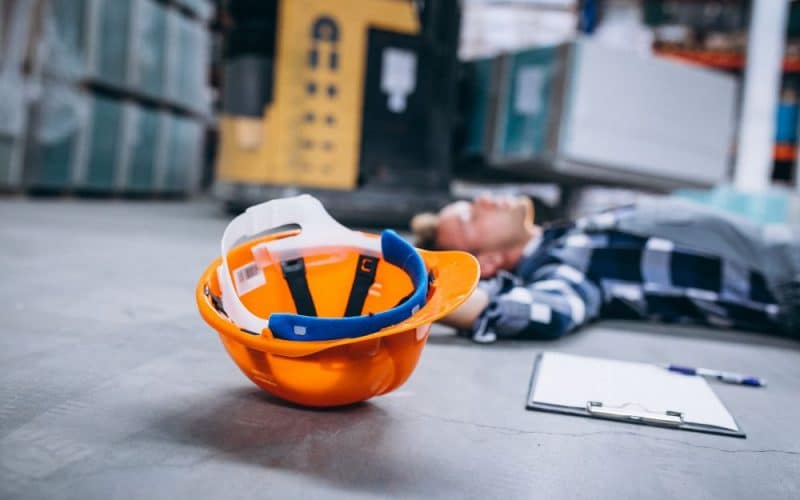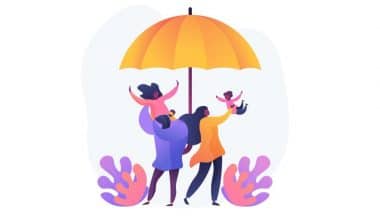Unlike traditional life insurance, which only pays out in the event of death, accidental death insurance provides additional coverage in case the insured experiences a serious injury or loses a limb or other body part due to an accident. The benefits paid out by an AD&D policy can help cover medical expenses, rehabilitation costs, and other expenses associated with an accidental injury.
They can also provide financial assistance to the insured’s family in the event of accidental death.
Accidents are the fourth leading cause of death in the U.S., and the No. 1 cause of death for adults ages 25 to 44, according to the Centers for Disease Control. Only heart disease, cancer, and Covid kill more than accidents.
That’s why there is accidental death and dismemberment (AD&D) insurance. But as with all life insurance products, it pays to understand what it really covers and if you need it.
Understanding accidental death insurance
Accidental death insurance benefits are riders or provisions that may be added to basic life insurance policies at the request of the insured party. Some people add accidental death benefit riders to their policies to protect their beneficiaries if an accident occurs. This is important, as accidents are hard to predict and can lead to financial struggles if a sudden death occurs.
Accidental death benefits are important for people who work in or around potentially hazardous environments. Even those who drive more than average—either professionally or as a commuter—should consider accidental death benefit riders.
As an optional feature, the insured party must pay an additional fee on top of their regular premiums to purchase this benefit. Then, the accidental death benefit increases the payout to a policy’s beneficiary. So, the beneficiary essentially receives the death benefit paid by the policy itself plus any additional accidental death benefit covered by the rider.
These riders typically end once the insured person reaches a certain age, such as 60, 70, or 80.
What classifies as an accidental death?
Insurance companies define accidental death as an event that strictly occurs as a result of an accident. Deaths from car crashes, slips, choking, drowning, machinery, and any other situations that can’t be controlled are deemed accidental. In the case of a fatal accident, death usually must occur within a period specified in the policy.
Some policies’ accidental death benefits may also cover dismemberment—total or partial loss of limbs—burns, instances of paralysis, and other similar cases. These riders are called accidental death and dismemberment (AD&D) insurance.
Types of Accidental Death Insurance Plans
Voluntary
A voluntary accidental death benefit plan is offered to members of a group as a separate, elective benefit. Offered by your employer, premiums are your responsibility. You generally pay these premiums through regular payroll deductions. Employees are covered for accidents that occur while on the job.
Policies pay out benefits for voluntary accident insurance even if the insured party isn’t at work.
Group life supplement
With a group life supplement, the accidental death benefit plan is included as part of a group life insurance contract, such as those offered by your employer. The benefit amount is usually the same as that of the group life benefit.
Travel accident
The accidental death benefit plan with travel accident insurance is provided through an employee benefit plan and provides supplemental accident protection to workers while they are traveling on company business. Unlike voluntary accident insurance, the employer usually pays the entire premium for this coverage.
Dependents
Some group accidental death benefit plans also provide coverage for dependents. If you have a spouse or partner, or children who depend on your salary to pay bills and other costs, it may be a good idea to enroll in an accidental death benefit.
This additional insurance could help them out by providing money to pay bills, pay off a mortgage, or provide money to their children for future events, like college. In addition, if you co-own a business, your business partner could be listed on your insurance policy to cover any outstanding debts in the event of your death.
Accidental Death and Dismemberment Insurance
As the name suggests, accidental death and dismemberment insurance provides coverage for a death due to an accident. It generally also pays if you lose a limb or a function such as sight, hearing or speech in an accident.
Typically, the beneficiaries you name on your policy will receive a lump-sum payment if you die in an accident. You can receive what are called living benefits if you are injured, and the amount you receive often depends on the type of injury.
For example, an AD&D policy might pay 50% of the coverage amount you purchase if you lose one thing—for example, a hand, foot or sight in one eye—and 100% if you lose two or more things. And policies might pay 50% to 100% of the benefit amount for paralysis as a result of an accident.
The amount of coverage you can get will depend on limits set by insurers or by employers that offer AD&D insurance as a workplace benefit. For example, you can purchase an AD&D policy from Farmers Insurance with a benefit ranging from $37,500 to $200,000 for an accident covered by your policy.
Farmers may also pay $1 million for “certain circumstances,” such as losing your life in a plane crash on a commercial flight.
What does accidental death & dismemberment insurance cover?
AD&D insurance will cover only deaths and injuries from accidents—not natural causes or illnesses. It does not cover heart attacks or strokes. Policies typically cover death or injuries from accidents at work, home and while traveling.
In addition, if your death is the result of an accident while traveling on public transportation, including a bus, train or airplane, the payout can be double or triple the amount of your base coverage. To be covered, a death from an accident doesn’t have to be instant, but it usually needs to occur within a certain time frame, such as within a few months.
The policy will outline the rules.
What does AD&D insurance not cover?
What is considered an “accident” by insurance companies isn’t as straightforward as it might seem.
Policies tend to have a long list of situations when death or injury won’t be covered. Those exclusions can vary from company to company and can depend on the state where the policy is issued. Benefits are generally not payable for:
- Injury that happened prior to coverage
- Death caused by illnesses, including mental illness
- Suicide or self-inflicted injuries
- Drug overdose
- Death or injury while driving under the influence of alcohol
- Death or injury from voluntarily inhaling gas or taking poison
- Death or injury while committing a crime
- Death or injury while participating in a riot or suffered during a war
- Injuries while serving in the armed services
- Death or injury from car racing, flying a plane, playing professional sports or participating in extreme sports such as sky diving and scuba diving
Cost of AD&D Insurance
The cost for AD&D insurance tends to be lower than rates for traditional life insurance because the coverage is limited to accidents. And if your employer offers AD&D insurance, you might be able to get a basic amount as a free benefit.
In general, AD&D insurance costs are tied to the amount of coverage you purchase. For example, monthly premiums might start at $4.50 for every $100,000 in accidental death coverage from Farmers. Rates start at about $8 a month for $100,000 of coverage from Fabric. Because rates can vary from insurer to insurer, it can pay to shop around for the best rate.
Pros and cons of accidental death insurance
Some people mistakenly think that having AD&D insurance is a financial safety net if someone dies unexpectedly.
Pros
- You don’t have to take a medical exam to get AD&D insurance. And you don’t have to answer questions about your health, which can make this type of policy appealing to people with pre-existing conditions that make it difficult to find affordable life insurance.
- You won’t be denied coverage because of your health. You just have to meet the age requirements. Typically, you must be between the ages of 18 and 70 or 80.
- You can get coverage quickly. Because there are no lengthy questionnaires to fill out, no medical exams to take, and no waiting period, you can get approved for a policy within a matter of days or even minutes for some policies purchased online.
Cons
- Limited insurance. AD&D will only pay out if the death or injury was a result of an accident—and there are plenty of ways to die other than an accident. This limited coverage is a big drawback.
- Coverage isn’t as cheap as it seems. An AD&D policy will cost less than regular life insurance. But that’s because the chance of an AD&D payout is relatively low. “The odds of you using it are so far down the scale that it becomes expensive for the payout,” Voegele says.
- You might lose your coverage if you leave your job. Most people who have AD&D insurance get it through a group plan at work, Voegele says. Often, you can’t keep that coverage if you leave your job.
How to sign up for accidental death insurance
The most common way to get accidental death insurance is through the workplace. Many employers offer it as part of their benefits package, and they may give you the option to add your spouse or children to the policy.
You can also buy stand-alone policies directly from insurers or through a bank or credit union. In some cases, acceptance is guaranteed, which means you don’t need to take a life insurance medical exam or answer health questions to qualify for coverage.
Some insurers also allow you to add an accidental death or AD&D rider to your individual life insurance policy for an additional premium. With this rider in place, your life insurance beneficiaries will receive an additional lump-sum payout if you die in an accident, and you’ll get the money if you’re injured as a result of a covered accident.
Since this rider typically doubles the payout of your life insurance policy if you die in an accident, it’s also known as a “double indemnity” rider.
Alternatives to accidental death insurance
A term life insurance policy is usually better coverage than AD&D insurance because it provides a payout for any cause of death (except suicide, generally within the first two years of having the policy). So accidents, heart attacks, strokes and more are all covered under a traditional term life policy.
If you’re young and healthy, you might be able to get a term life policy at a rate that’s not much higher than what you’d pay for AD&D insurance.
You’d also be better off signing up for disability insurance through your employer or getting a policy on your own in case you’re unable to work. Disability insurance will help replace lost wages if you can’t work because of illness as well as an injury.
Recommended Articles
- Life Insurance For High Risk: How Does It Work?
- Permanent Life Insurance: What Is It & How Does It Work?
- Child Rider Life Insurance: How It Works & Benefits
- Best Life Insurance For People Over 50
- 9 Best CRM Software For Insurance Agents
- Certificate of Liability Insurance: What Is It & How Do You Get One?






